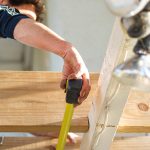Selfbuild finds out what financial support is available to self-builders in Ireland today and what elected officials are suggesting the government should do to encourage people building their own home.
In this article we cover:
- What financial support is available for those who want to build a house in Ireland (NI and ROI)
- What kind of financial help is available for those who are renovating in Ireland
- What type of grants and fixed cost reliefs could be introduced for new builds
- Tax reduction proposals
Self-builders in England are doing pretty well. The government has always supported self-building in one way or another, with a new scheme recently launched. Sadly, very few of these incentives have so far extended to NI apart from the renewables grant (also notoriously referred to as the ash for cash scheme).
And while there are plenty of supports available to first time buyers in both NI and ROI, especially in the form of shared equity schemes with both jurisdictions recently launching new arrangements, there is only one that extends to self-builders.
And it is in ROI – the Help to Buy scheme. It helps you put down a deposit to build your home (or buy a new one) and it is due to expire at the end of 2022. Although the upcoming budget may extend its lifeline.
According to an analysis from the Irish Mirror, based on statistics from myhome.ie, in ROI it looks like you would need a €50k salary to buy or build a €200k house with a €20k deposit. Silver lining: the Help to Buy scheme will help towards the deposit. However, according to the Banking and Payments Federation of Ireland the median total household income for first time buyers jumped to €77,000 in 2021. Self-builders in NI, meanwhile, are eligible for the 95 per cent mortgage.
Beyond new builds, those who are tackling a major renovation project will get some supports. In ROI there are retrofit grants for energy upgrades (mostly for insulation, ventilation, heat pumps, up to half the costs are covered) made available through the Sustainable Energy Authority of Ireland (SEAI). NI’s energy grants, meanwhile, are mostly targeted at fuel poor households.

So what’s in the pipeline? We look at what elected politicians have to say although only time will tell if the government budgets will take on some of these suggestions.
Direct Financial Support
South Mayo Councillor Patsy O’Brien told Midwest Radio he wanted to see the reintroduction of a grant scheme for people building their own home. He referred to the grants from the 1980s which were part mortgage subsidy, part cash grant. He says they would amount to €50k in today’s money.
The grants, he said, should be introduced with a minimum of red tape – taking a stab at the complicated process of applying for an SEAI retrofit grant.
O’Brien suggested the grants could have a cap on house size and require that the home be built to certain environmental standards.
Reduce levies

Sean Canney, Independent TD, told thatsfarming.com that the ROI government should abolish the development levies paid to the local authorities for roads and other infrastructure. He wants to see local authorities funded directly from central government.
He also thinks Irish Water connection fees for wastewater and drinking water should be capped to a maximum of €1,500 for each connection type.
Canney reckons anyone building their own home faces costs in excess of €20k before they put a spade in the ground, citing tax, legal costs, development levies, and utility connection fees.
Tax relief

Canney also suggests a VAT Refund Scheme of 13.5 per cent. He said that would save first time buyers €36k on a €300k house.
Meanwhile, Independent TD Richard O’Donoghue called for a 9 per cent VAT rate on building materials to soften the blow of building material price increases.
RTÉ’s Prime Time in fact recently reported on the issue of tax and the cost of building. A couple based in Cork told the investigative team that they had costed their 2,300 sqft, four bedroom, two storey house at €270k for a builder’s finish in 2021.
They ended up going to tender in March 2022 and got a quote from the same builder of €363k, €43k of which was VAT – nearly €10k more in VAT than what was quoted in the original estimate.
Subsidise build costs

Earlier this year, the Irish Independent reported that Wexford Councillor Ger Carthy suggested providing full financial support to self-builders who have access to a site.
It would cost between €230-270k to build a 97sqm house in rural Wexford excluding site costs, Wexford County Council estimates. “I believe if there’s a young couple who can supply us with a site, and we can build them a house for that price, I think it’s important they’re allowed to live in the area they were born and reared in,” he said. Councillor Jim Codd seconded his motion.
Councillor Lisa McDonald said she supported building houses but suggested small housing estates in villages. “We have beautiful top class schools in the countryside which aren’t being used because of our policy and they won’t be used unless we change it, I don’t think this is a cost-benefit situation, this is about saving rural Ireland,” she said.
Councillor Frank Staples supported the idea but said he felt efforts would be hampered by the lack of available utilities, citing difficulties in getting Irish Water connections to mains water and sewerage. “The County Development Plan wants houses to be built in villages, but there’s no sewerage to facilitate this,” he said.










